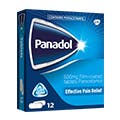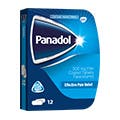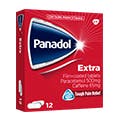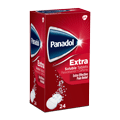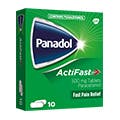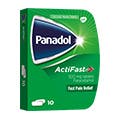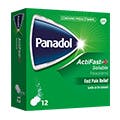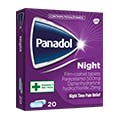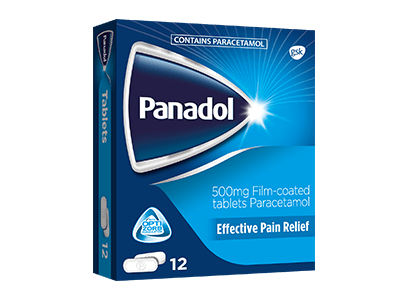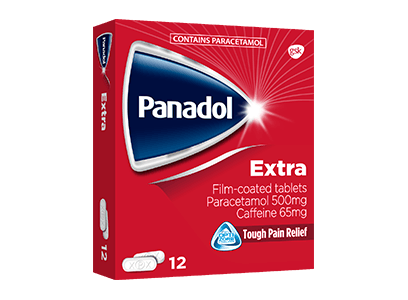

Panadol Tablets

Panadol Compact

Panadol Extra

Panadol Extra Soluble

Panadol Actifast

Panadol Actifast Compack

Panadol Actifast Soluble

Panadol Night
Compare Now (0/5)
- Product
- Format
- Age
- Key Features
- Ingredients

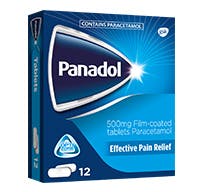
Panadol Tablets
- Tablets
- 6+ years
- Gentle on the Stomach
- 500mg Paracetamol

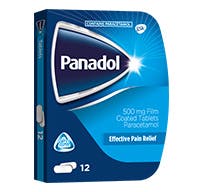
Panadol Compack
- Tablets
- 6+ years
- Gentle on the Stomach
- 500mg Paracetamol

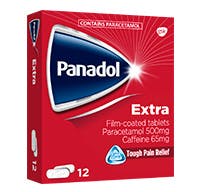
Panadol Extra
- Tablets
- 12+ years
- Fights Tough Pain
- Paracetamol 500mg
- Caffeine 65mg

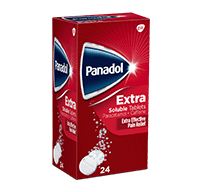
Panadol Extra Soluble
- Soluble Tablets
- 12+ years
- Fights Tough Pain
- Paracetamol 500mg
- Caffeine 65mg

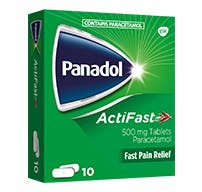
Panadol Actifast
- Tablets
- 12+ years
- Fast Pain Relief
- Paracetamol 500mg

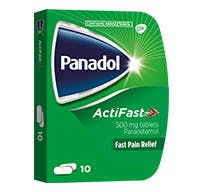
Panadol Actifast Compack
- Tablets
- 12+ years
- Fast Pain Relief
- Paracetamol 500mg

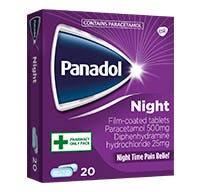
Panadol Night
- Tablets
- 12+ years
- Relieves night time pain
- Paracetamol 500mg
- Diphenhydramine Hydrochloride 25 mg

.png?auto=format)
Panadol Actifast Soluble
- Soluble Tablets
- 10+ years
- Gentle on the Stomach
- 500mg Paracetamol
Minimise

Cold & Flu
Sinus pain and sinusitis

Understanding the sinuses
The sinuses are four pairs of air-filled cavities behind your cheekbones and forehead. Their role is to ensure the air coming in through the nose is at the right temperature and humidity before it enters the lungs.
The mucus produced in the sinuses usually drains through small channels into your nose. When the sinus linings are inflamed due to colds or allergies, the passages become blocked, and bacteria and other germs can grow and cause infection.

Sinusitis symptoms
Symptoms of sinusitis may include:
- Nasal congestion or discharge
- Headache; pressure or pain around the eyes, cheeks, or forehead
- Fever
- Cough or sore throat
- Toothache
- Reduced sense of smell
- Bad breath
Tips to manage sinus pain and sinusitis
To ease sinus congestion and pain, there are a few things you can do:
- Drink plenty of fluids to help thin the mucus in the sinuses
- Apply a warm, moist washcloth to the face several times a day
- Inhale steam 2–4 times per day
- Use a humidifier to keep the air moist
- Use a saline nasal spray several times a day as this can remove thick mucus and help the sinus to drain
- Avoid sudden changes in temperature or bending your head down
- Take simple analgesics such as paracetamol or Ibuprofen to ease pain or fever
- Avoid smoke, pollutants, and other irritants, and avoid flying when congested
When to see your doctor
For most people, sinus pain will ease once the congestion has cleared up. Consult your doctor if you have:
- Symptoms lasting longer than 10-14 days, or a cold that becomes worse after 7 days
- A severe sinus headache that is not relieved by over-the-counter pain relief medications
- A fever
- Symptoms that persist after taking a full course of antibiotics prescribed by your doctor
- Any changes in your vision during a sinus infection
